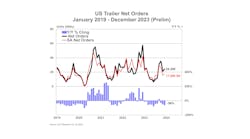But he did not motivate them. He made that very clear before he even got started.
He said three enemies will come at us in attack mode:
• Distractions. “There are more distractions now than have ever been recorded in the human race. If we keep you distracted, you lose your focus, and if you lose focus, you adapt to somebody else’s agenda. You need to be better than the enemy.”
• Interruptions. “There are more interruptions today than have ever been recorded. I can interrupt you in a heartbeat. All I have to do is text you. All I have to do is email you. All I have to do is call you. All I have to do is Facebook you. You know what the name of interruptions is in America? Squirrel. Have you ever seen the movie Up?”
• Procrastination. “I just exposed it. It’s not so happy I did that. So how do you beat it?”
He said it’s done through the philosophy of EAT: Eager learner, Argue, Thankful.
• Eager learner.
“It’s statistically proven that 80% of you have lost the word why. You get to a certain age and think you should know. We’re in the information age. You get around peers and you don’t want them to know you don’t know. He doesn’t either. So we have two people talking about something they don’t know anything about.”
• Argue.
“Never take advice from somebody more messed up than you. Good advice never comes to you. You have to seek it out. Only bad advice comes to you without the choice. The fewer excuses you allow into your life, the more room you make for opportunities. Know why some people in this world are negative? It’s easier to be mean than to be nice. It’s easier to say, ‘This guy’s weird.’ It’s easier to be critical than to be open. It’s easier to hurt than to help. It’s easier to tear down than to build up. That’s human nature. You can’t dispute that.
“People don’t shoot down people who are down. We only shoot at people making a difference. If they ain’t shooting at you. you’re not in the game. If they are, then you should be thankful because you’re making a difference.”
• Thankful.
“I’m not talking about how blue the sky is or how green the grass is. There’s no perfect child or no perfect Mom or Dad. So why does everything look better over there? It’s because you’re spending more of your time looking over there. Who wants this year or next year to be some of the best years? Here’s my gift to you: Spend more of your time focusing on where you are than where you’re not. Spend more of your time focusing on what you can control compared to what you cannot.
“It’s not the time for the industry to make you happy. It’s this time for you to make the industry better by doing what’s important. And how do you feed that mindset? It’s a mindset. Everybody in this room has the same gift. You’ve just chosen to stop looking. Too many people in this room are average, and that makes me sad, considering you are the best of the best in this industry. I came to expose it. You know how I know you’re average? You won’t appreciate what you have until you lose it. You can’t see it because you have chosen not to.
“Don’t be average from this day forward. Be good. You know what good is? You appreciate what you have while you have it. It’s your job to see what’s in your life.”
The power of reading
Dodge encouraged the audience to become voracious book-readers. Or at least start small by reading a little bit.
“Let’s be honest: It’s easy to read. It’s easy not to,” he said. “Is it easy to eat? Yes. Is it easy not to? No. Everybody has to eat. Not everybody has to grow. Growth is a choice. Can a book change a life? Yes.”
Dodge said a good book is a good seed.
“A good seed is coming together even stronger like never before,” he said. “Learn from wisdom and stop taking advice from mistakes, and this room and industry will become stronger. A good seed is following your heart.
“Know what destroys all of that? Bad seeds. Know what a bad seed is? When you really want to open up and get better, and somebody says, ‘Why? You won’t get paid for it.’ Know what a bad seed is? When you really want to do what’s right, and somebody says, ‘Why? Nobody else is.’ ”
He said McGraw and Hill asked him to write a book. He said he wrote the book—The Good Life Rules: 8 Keys to Being Your Best as Work and at Play, published in 2008—for only one reason: to thank his parents.
He said his goal last year was to give away 10,000 of his books, and he exceeded it by 5000. That’s another good seed.
“A book can change a life,” Dodge said. “But do you know what’s more important than a book? Who gave it to them. My goal is to hit 20,000 this year.”
Help is on the way
Dodge had good news for companies that are having trouble finding qualified employees. The next wave of talent is coming. They’re in abundance. And they’re ready.
The challenge, though, is to be the type of company that people find attractive.
“You don’t find good people—they find you,” he said. “Once they are hired, they will stay not because they are paid large sums of money but because they are nurtured.
“Money does not produce loyalty,” he said. “(One management philosophy) says, ‘All I’ve got to do is pay you and you’ll be loyal.’ That’s not how it works. Being a mentor/coach creates loyalty. In this room are leaders, teachers, coaches. You have so much talent. It’s time for you to get back in the game.”
How to defeat procrastination
Dodge offered a formula that he said would help convert good intentions into good results. The recipe, which he characterized as “the most powerful formula for success in this life,” is 48/21/1/3.
The first number in the formula is the amount of time we have to act on a commitment that we make to ourselves. If we don’t follow through within 48 hours, we probably never will.
“What comes upon your heart, you have to act upon within 48 hours,” he said. “It’s called the truth of diminishing intent. You got to get ‘er done. Then you beat the interruptions, distractions, and never feed procrastination.”
The second number represents the amount of time we must maintain our new behavior. Dodge claims that it takes 21 days to change a habit. If you stay focused on it for 21 days, everything will change.
“Where did 21 days come from? It came from World War I. Amputation was the only process used to save soldiers. If your leg got blown up, they just cut it off. Soldiers would say, ‘I know I can’t see my arm, but I feel you shaking my hand and you’re squeezing hard.’ They’d act as if they had limbs, and they hurt themselves more. So doctors had to figure out how long to confine soldiers before they could release them after amputation. Twenty-one days.”
And the 1/3 part of the formula?
“If you beat interruptions and distractions, your life gets better for one year,” he said. “The industry and everybody depending on you goes up for three years. It’s a 3-to-1 ratio. If I stop you, I stop the majority for three years. Now you know why they’re coming at you.
“If you don’t act upon it within 48 hours, and don’t stay focused, your life goes down for a year, and you affect everybody around you for three years. It goes both ways.”
Growing new habits
His challenges for everybody:
• When you wake up, get up.
• Get a reading chair. “And by the way, it doesn’t have a hole in it. It’s not a toilet.”
• Read for only 15 minutes a day for the next 21 days. Dodge believes that by setting a limit of 15 minutes, you will reach an awkward spot in the book. You will not want to stop at that point, but this will create a desire to continue reading the next day.
• Set goals and write them down.
“Those who write down goals do better than those that don’t. What percent of people in America write down goals? I don’t know. Here’s what I know: I know the answer to why you write down goals. Goals are a responsibility, not an option. It ain’t about you getting more, knowing more, seeing more, doing more, having more. It ain’t about what you’re going to get. It’s about you being responsible. If you don’t feed your kids, what does society do? They take your kids from you and feed them for you. Because not feeding your kids is not an option; it’s a responsibility. If you don’t write down goals, you’ve chosen not to be responsible. And by violating that, it allows somebody else to do that. Nobody can write down your goals for you.
”America would be a stronger country if each and every industry would choose to be more personally responsible. So we can’t change what they do but we can be reminded what to do. It’s not up to them. It’s up to you.
“Commit to one goal: get up tomorrow morning with only one goal—to influence the person next to you to have a better life. You’ll never regret it. It’s what life is all about. Once you’re there, the energy will come, the focus will be there, and life will be easy for you. If life is hard on you, it’s because you’ve been too easy on yourself for too long. You’ve been working so hard on business you forgot to work on yourself.”
We are family
Dodge lauded the TTMA members, saying he has followed the industry for many years and admires the character of the people in it.
“You talk about salt of the earth,” he said. “These are people with great hearts and know how to stay together. In this room, there is a major amount of competition, but in essence you’re still family. That is so not possible in other industries.
“You love this industry and you should be thankful you’re still in it. The reason why you’re here is because you’re the best of the best. Be thankful.”
Find the TTMA Report archive with articles from 2012 to present











